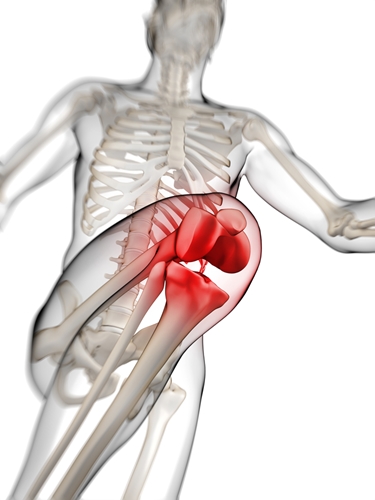
CMS clarifies requirements for meaningful use hardship exemption
Physicians and federal agencies alike hope that the meaningful use incentives program will eventually produce sweeping benefits for the health care industry through the use of electronic health records systems.

At-risk lung cancer patients identified by EHR screening
At times, meaningful use requirements can seem like busy work blindly focused on attesting for incentive payments, but with increasing frequency, electronic health records are being used in ways that increase the potential of physicians to administer effective treatment.

Secure EHR systems can help avoid data breaches, HIPAA fines
Data breaches can be health care IT professionals' worst nightmare.

Stage 2 requirements should be approached holistically
Now that stage 2 of meaningful use is well under way, some health care professionals are wondering how they can optimize their response to the next phase of the industry-wide transition to electronic health records.

With CMIOs, physicians can put focus back on patient
The health care industry's focus during this year's Healthcare Information and Management Systems Society conference may have fallen on the battle over meaningful use and ICD-10 between the Centers for Medicare and Medicaid Services and various groups, such as the American Medical Association and American Hospital Association.

CMS pledges more flexibility for meaningful use requirements
Health care organizations have long been clamoring against the burden that meaningful use attestation has placed on their workflows.
EHR analytics improve off-label drug use tracking
While physicians have a variety of tools at their disposal to treat the myriad conditions they see each day, sometimes they prescribe drugs against the explicit meaning behind their development.

48 providers ask HHS for an extension on meaningful use deadlines
Health care professionals had a relatively easy time purchasing and implementing electronic health records software through stage 1 of meaningful use, but as the deadlines for stage 2 requirements approach in July, some organizations are losing confidence that they will be able to meet those criteria.

Stage 2 requirements should be approached holistically
Now that stage 2 of meaningful use is well under way, some health care professionals are wondering how they can optimize their response to the next phase of the industry-wide transition to electronic health records.

Massachusetts physicians could lose licenses without EMR certification
Ever since electronic medical records were introduced to the health care industry, professionals from front-line physicians to high-level administrators have worked to satisfy the requirements of meaningful use stage 2 requirements in order to qualify for incentive payments.

CMS agrees on end-to-end testing for ICD-10
It was not an easy fight for vocal opponents of the Centers for Medicare and Medicaid Services' testing program for ICD-10, but after several highly publicized letters and charged criticism, the CMS has given way and agreed to exhaustive end-to-end testing of their and providers' systems for the new medical billing processes.

Duke researchers use gene therapy to regrow cartilage within the body
Usually, when cartilage has deteriorated through overuse or autoimmune conditions, it cannot be replaced.

EHRs may help patients stick to medication schedules
As is the case with any new technology adopted into the medical industry, true value rests in its ability to improve patients' quality of care.

Physicians not skeptical of EHRs’ potential
Ever since the mandated implementation of electronic health records systems into medical practices large and small, there has been industry-wide pushback against the encroaching technology.

Physicians are willing to work hard for smoother ICD-10, EHR transition
Much has been made about the troubles surrounding the transition to ICD-10, and while electronic health records are here to stay, there is serious doubt within the community of physicians that the changeover from the relatively paltry amount of codes in the current system will produce a net benefit for medical professionals.

Advances in orthotics grant mobility, ease pain for active patients
Although orthopedic EMR software gives physicians and patients a better picture of the medical issues they face, there will always be patients who live with their pain far beyond the point of necessity.

Karen DeSalvo calls for focus on greater EHR interoperability
The Office of the National Coordinator for Health Information Technology is one of the government organizations that has been spearheading the adoption of electronic health records in the U.S., which is why health care professionals turn to the ONC to get answers about the future of this technology in the country.

Providers have received more than $19 billion in EHR incentives
Providers who have become frustrated trying to meet the requirements for the U.S. Centers for Medicare and Medicaid Service' electronic health record meaningful use incentives program should take comfort in the latest report from the CMS.
